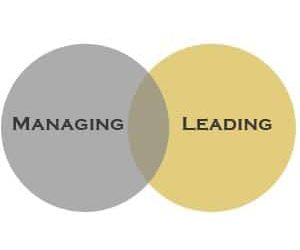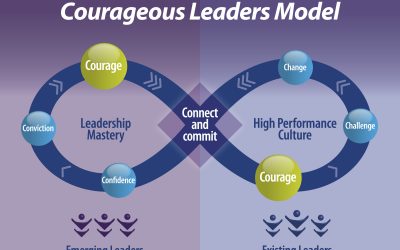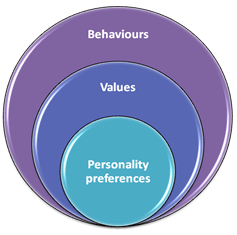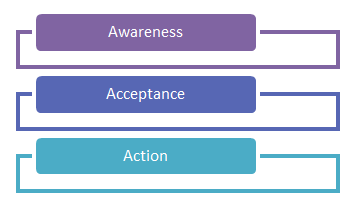Blogs
Managing v Leading
There’s been many an article written about the difference between managing and leading. Recently, I had a conversation about the differences between managing and leading – referring to the work of John Kotter – where he clearly states that we manage to implement (or...
Breaking through the Gravity of our Behaviour Conditioning
"A human being trying to catalyse the emergence of a higher level of consciousness is like a rocket ship trying to break through the gravity of the Earth's atmosphere. The gravity that we are endeavouring to release ourselves from is the historical weight of our...
Overcoming the tension between bottom line results and culture with courageous conversations
In most organisations, there is an ever present tension between the bottom line results that are expected - both internally from upper management and externally from stakeholders and shareholders. Sadly, we live in a society that attaches a strong focus on the short...
Seven Questions for Courageous Leaders
Trawling through the archives, we found this blog post from 2011. As both regular readers and admirers of Seth Godin's work, we used one of his posts to frame how his ideas often link to leadership - and in particular the Courageous Leaders model. At...
Finding your Sweet Spot
This blog post originally appeared in May 2011 As we come to the end of our series on Self Mastery, we take a look at one of the great results of spending time on developing yourself. Finding your sweet spot, enlarging it and regularly operating in that space. The...
Why Self Mastery can be Difficult
Last week we talked about the mistakes that many people make when they embark on their leadership journey. This time, we’ll look at the top 5 reasons developing Self Mastery can be difficult. 1. Integrating it into who you are every day Intellectually understanding...
Five Common Mistakes when Developing Self Mastery
Striving towards Self Mastery is a brave and challenging journey. In our experience, there are five common mistakes when developing Self Mastery: Judging Others After discovering the journey of Self Mastery and choosing to embark upon it, it is common to look at...
Self Mastery for Existing Leaders
By the very nature of their role, as those responsible for investment decisions, the strategic direction of their organisation and the management of resources and performance, existing leaders have created success in their career, which begs the question: why do they...
Self Mastery for Millennials
Millennials are people born roughly between 1981 and 2000 which puts them somewhere between finishing high school and stepping into management positions. Ideally, when stepping into those management positions, thought has already been put into your leadership style...
Why Self Mastery is Necessary
When covering Self Mastery in our leadership program, I often see leaders struggle to understand the relevance of what they consider to be self indulgent time. They lack interest and purpose in investing time in learning more about themselves and how that can...
What is Self Mastery?
We talk about Self Mastery as one of the four pillars of Leadership Mastery - alongside Relationship Mastery, Business Mastery and Technical Mastery. So what is Self Mastery? It is an understanding of what is important to you. This deep understanding enables you to...
Accept or Ignore Feedback
People need to realise they have a choice when it comes to receiving feedback and by ensuring they know this they will feel empowered, responsible and accountable. Managers and leaders need to acknowledge it is always the choice of the person receiving the feedback if...
Receive Feedback Effectively with Reflection
People are not actively encouraged receive feedback effectively with reflection. To use reflection is to step away and think about the feedback they have just listened to so they can “reflect” on what they want to choose to do with it. Too often people resort to their...
Feedback: Listen with Intent
As your humanness erupts and the chatter in your head explodes this is where receiving feedback effectively is truly challenging. It calls for emotional resilience and listening with the intent to really get into the shoes of the other person . It can never be about...
Receive feedback effectively – seek it in the first place
Surprise attack is never a good way to begin the process of receiving feedback and so I always say the more senior you are in an organisation then the more ‘seeking’ you really need to do. No one is going to take care of your career the way you will – so get out there...
How to receive feedback effectively
It is critical to recall from earlier blogs in this series that feedback brings awareness not action because when receiving it effectively this context is just as important as it was when we explored how to give feedback effectively: Definition of feedback Feedback is...
How to give feedback effectively
It is critical to recall from earlier blogs in this series that feedback brings awareness, not action, because when giving it effectively this is an important context for your conversation: Definition of feedback Feedback is describing other’s behaviours and outcomes...
Why Feedback can be Difficult
Both giving and receiving feedback can be difficult and it is mostly our ‘humanness’ that gets in the way – we feel, we defend, we protect, we justify, we attack – all very common human traits that we need to work with and not against. To work with these human traits...
Do you separate feedback and coaching conversations?
Combining feedback and coaching conversations is all too tempting for many leaders. It feels like the quick fix to ensure performance is re-established where you want it to be. This just won't work because the purpose of each of these conversations is very different....















